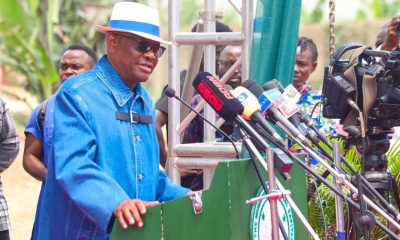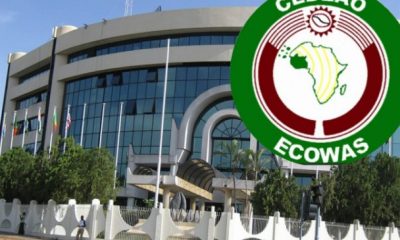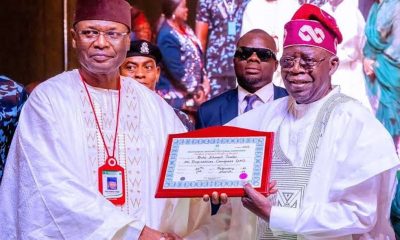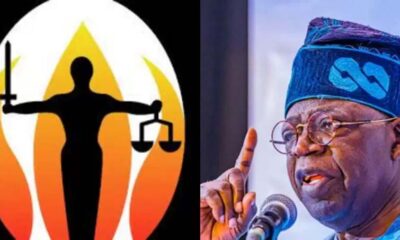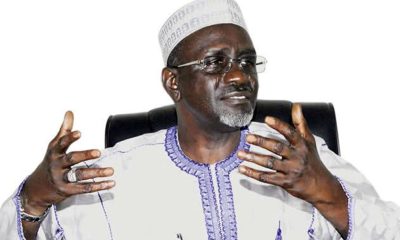Africa
Niger Coup: What options are available to Tinubu, ECOWAS?
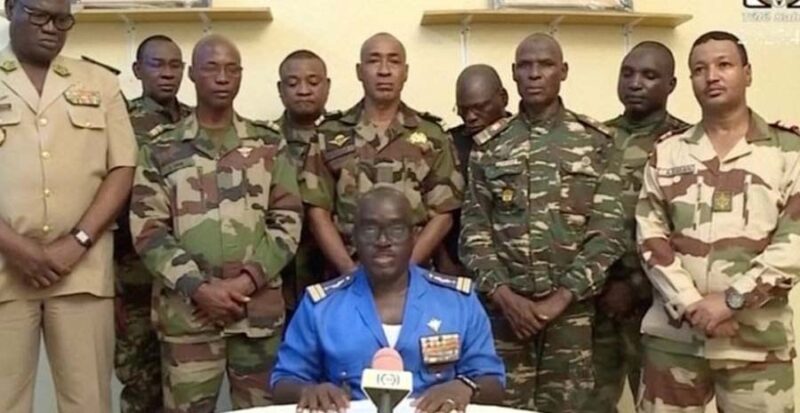
Niger Coup: What options are available to Tinubu, ECOWAS?
A news Analysis by Premium Times
As Nigeria’s President and ECOWAS Chairman Bola Tinubu prepares to host what may become a significant moment in the recent history of the West African region and his term as leader of the bloc, he is faced with a cocktail of options from which he must choose wisely.
On Sunday, leaders of ECOWAS will convene in Abuja for a special session at the request of Mr Tinubu to discuss the recent coup in Niger, the sixth in the sub-region since 2020.
ECOWAS condemned the coup with the chairperson promising that ECOWAS and the international community would do everything to defend democracy and ensure democratic governance continues to take firm root in the sub-region.
The coup in Niger has been widely condemned by the international community with the African Union (AU) giving the coup plotters 15 days to relinquish power However, locally in Niger, the coup has elicited mixed reactions as some, including the army, are in support of the presidential guards responsible for the rebellion and others against it.
Sunday’s session is expected to produce a roadmap on how to tackle the situation in Niger while also demonstrating the unacceptability of coups in the subregion as Mr Tinubu said in his first speech as leader of ECOWAS.
A source close to the Nigerian president but who does not have permission to speak to the press said ECOWAS ambassadors already made recommendations to the heads of state who will attend the meeting.
He told PREMIUM TIMES that decisions will be taken at the meeting on how to deal with the challenge in Niger.
What are the options available?
Although the ECOWAS Protocol on Democracy and Good Governance spells out steps Mr Tinubu can take or initiate in an attempt to restore constitutional rule in Niger, they are not without consequences.
“In the event that democracy is abruptly brought to an end by any means or where there is a massive violation of Human Rights in a Member State, ECOWAS may impose sanctions on the State concerned,” the protocol stipulates.
It goes further to state that the sanctions may take several forms, in increasing order of severity including refusal to support the candidates presented by the Member State concerned for elective posts in international organisations, refusal to organise ECOWAS meetings in the Member State concerned and suspension of the Member State concerned from all ECOWAS decision-making bodies.
“During the period of the suspension, the Member State concerned shall be obliged to pay its dues for the period. During the period of suspension, ECOWAS shall continue to monitor, encourage and support the efforts being made by the suspended Member State to return to normalcy and constitutional order.”
The above recommendations of the protocol may seem to be the magic wand needed to return Niger to status-quo but history has shown how ineffective the sanctions are. Mali and Burkina Faso are clear examples of where sanctions did not serve as a deterrent to coup plotters.
For Olubukola Adesina, a professor of political science at the University of Ibadan, Mr Tinubu has only two options to pick.
“It is either he talks tough or tries to use diplomacy,” she said, adding that if he talks tough, he may want to consider sanctions, travel bans or even an invasion but one cannot tell what the consequences of an invasion may be in this age and time.
On the other hand, Ms Adesina noted that ECOWAS can try to convince the coup plotters to return to democratic rule by organising elections as soon as possible especially because the coup plotters appear to have the support of the people.
“Because for a coup to be successful, it means that people are not averse to it. So the only thing we can do is to try to see how the coup leader can be convinced to convene a democratic election quickly,” she told PREMIUM TIMES.
PREMIUM TIMES reported that the coup plotters claimed that the coup was carried out due to the deteriorating security situation and the bad social and economic conditions in Niger. They have also received support from the army.
Ms Adesina, however, recommended that ECOWAS toes the line of diplomacy as oftentimes, sanctions are only symbolic.
“Coups are no longer fashionable. Democracy remains the way forward albeit fraught with its own challenges,” she added.
A former Nigerian Chief of Army Staff, Martin Agwai, expanded the options available to include diplomacy, negotiation and talks with external partners if they exist.
The retired military officer suggested that pressure from various political and economic blocs like the UN, EU, AU and ECOWAS could be deployed in removing the coup plotters legally. However, this can only work if the mutinous soldiers do not have the support of the people, he said.
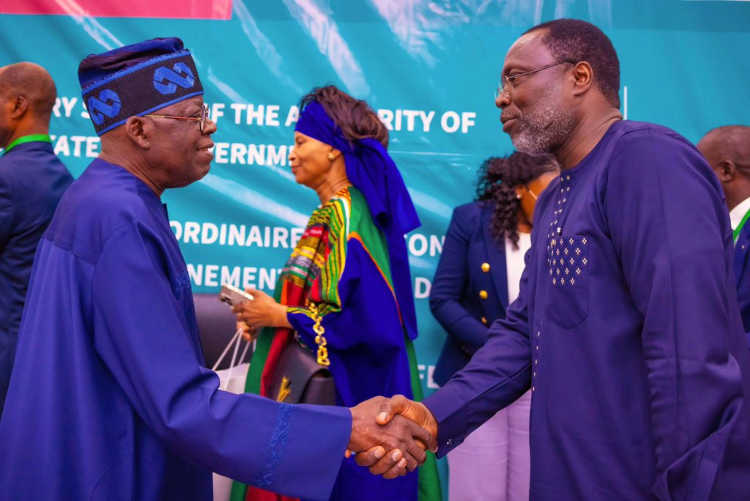
In the case of Niger, they do not only have the support of the people but also have the support of the army and so, diplomatic pressure may not work.
Another option available to Mr Tinubu according to Mr Agwai is to deploy the military to sweep out the coup plotters should they refuse to hand over power to the democratically elected president.
But Mr Agwai noted, that this will end as a bad choice as there will be loss of lives and property which may further plunge Niger into a worse situation. He added that ECOWAS would also have to ascertain if there are any external influences or interests in the coup and may consider talks.
For Gbemisola Animasawun, an associate professor at the Centre for Peace and Strategic Studies, University of Ilorin, sanctions are not efficient and should not be an option in Sunday’s talks.
“ECOWAS should negotiate with the coup leaders,” he said.
He noted that sanctions only impoverish the people and exclude the actual culprits. When this happens, the sanction becomes a tool in the hand of the coup plotters where they play on the emotions of the people, convincing them that the sanctioning power has ulterior motives aside from entrenching democracy.
This will most likely be the case in Niger given the basis upon which the coup plotters claimed to have ousted President Mohamed Bazoum and the support they have received so far, he said.
Anti-French sentiments have continued to grow strongly within French-speaking states in Africa and will be a convenient spin to use in order to rally Nigeriens against any sanctions.
Mr Animasawun noted that the coup in Niger is not entirely a surprise given the coup contagion, especially in Francophone Africa. However, to address Niger, Mr Tinubu has to choose between stability and democracy which may not necessarily be exclusive of each other but will require the president (Tinubu) to tread carefully, he said.
“Stability and Democracy because an unstable Niger has implications for Nigeria’s war on terrorism. Whatever happens in Niger has implications for our national security and geopolitical interest. It also has an implication for the personae of Tinubu as the president of Nigeria and the leader of ECOWAS,” he explained.
Contrary to the general assumption that democracy brings about stability, Mr Animasawun explained, it is not automatic because if democracy does not deliver and fails to be inclusive then there will be no stability.
“Not all undemocratic states are unstable and not all democratic states are stable,” he said, giving the example of Libya which was stable until Gaddafi was removed.
According to him, Libya was stable because it was a kind of government that met the needs of the people but for some freedoms that were curtailed. Its economic indices at the time however placed it above many economies in Africa.
“It is the push towards democracy that has made Libya now unstable,” Mr Animasawun said.
Additionally, Mr Tinubu must balance his role as the leader of ECOWAS and also as the president of Nigeria keeping in mind Nigeria’s geopolitical interest (security) not necessarily the type of government, he said.
When asked what the implication of choosing between stability and democracy will be, Mr Animasawun said while one will be realistic, the other will be symbolic.
“The realistic part is that if we go for stability, that would likely be at the expense of democracy which will take away from the symbolic position or value of President Tinubu as the leader of ECOWAS,” he explained.
A middle ground exists, he believes. It will be to find a reconciliation between stability and democracy which is quickly putting in place a transition plan as the coup leader cannot be forcefully removed as it may worsen an already bad case.
He noted that Mr Tinubu must take lessons on legitimacy and good governance from what is happening in Niger especially considering the sentiments around his own elections in Nigeria.
“One fundamental basis for successful mediation is the credentials of the mediator. If a mediator is faced with questions of credibility or legitimacy then he or she must tread cautiously,” Wilson Ijide, a retired colonel and lecturer at the Department of Psychology and Institute for Peace and Strategic Studies, University of Ibadan, said alluding to Mr Tinubu’s own challenges.
He said this crisis of legitimacy faced by Mr Tinubu will naturally affect the efficacy of the intervention by ECOWAS.
In spite of the foregoing, “the options available to Tinubu and ECOWAS ahead of Sunday’s meeting is to face reality and negotiate ways towards smooth handover to a democratically elected government within a feasible timetable,” Mr Ijide told PREMIUM TIMES, adding that there should be no grandstanding by ECOWAS on this.
Africa
Okada rider allegedly stabbed to death by wife over money

Okada rider allegedly stabbed to death by wife over money
A Bodaboda operator identified as Geoffrey Ouma, was allegedly stabbed to death by his wife in their home in Ongata Rongai town, Kenya after he returned with less money than usual.
Witnesses reported that the man fondly called Jeff, had just come back from work, having earned significantly less due to heavy rainfall affecting business.
His wife confronted him about the household items that they lacked and demanded that he provided the money to get them. When he was unable to do so, an argument ensued between them.
READ ALSO:
- Police rescue two persons abducted in Lagos
- Miyetti Allah accuses Benue community of poisoning 20 cows
- Wike’s aide slams Atiku, says it’s too late to buy integrity
In a fit of rage, she rushed to the kitchen to grab a knife.
Sensing the imminent danger, the Bodaboda operator attempted to flee but slipped and fell on the floor.
The wife then stabbed him in the chest, ending his life instantly.
By the time neighbors arrived, it was too late; he was already dead.
The two have been married for around 5 years and have a child.
It was gathered that the Ongata Rongai Police have arrested the woman.
Okada rider allegedly stabbed to death by wife over money
Africa
West African juntas impose levy on imported goods ECOWAS nations

West African juntas impose levy on imported goods ECOWAS nations
West African neighbours Mali, Burkina Faso and Niger have announced a new 0.5% levy on imported goods as they seek to fund a new three-state union after leaving the larger regional economic bloc, they said in a statement.
The Alliance of Sahel States began in 2023 as a security pact between the military rulers of the three countries, who all took power in coups in recent years. It has since grown into an aspiring economic union with plans for biometric passports and closer economic and military ties.
The levy was agreed on Friday and will take effect immediately. It will affect all goods imported from outside the three countries, but will not include humanitarian aid, the statement said. It will “finance the activities” of the bloc, it said, without giving details.
READ ALSO:
The move ends free trade across West Africa, whose states have for decades fallen under the umbrella of the Economic Community of West African States (ECOWAS), and highlights the rift between the three states that border the Sahara Desert and influential democracies like Nigeria and Ghana to the south.
The juntas of the three countries announced plans to leave ECOWAS last year, accusing the bloc of failing to assist in their fight against Islamist insurgents and ending insecurity.
ECOWAS had imposed economic, political and financial sanctions on the three in a bid to force them to return to constitutional order, to little effect.
Mali, Burkina Faso and Niger are some of the poorest countries in the world and have been overrun by an armed Islamist insurgency over the past decade.
The violence, committed by groups linked to al Qaeda and Islamic State, has killed thousands, forced millions to flee, and eroded faith in the democratically-elected governments who initially struggled to contain it.
West African juntas impose levy on imported goods ECOWAS nations
Africa
Niger coup leader sworn in as president for five years

Niger coup leader sworn in as president for five years
Niger’s military ruler Gen Abdourahamane Tchiani has been sworn in as the country’s president for a transitional period of five years.
Tchiani has led the country since 2023, after he deposed Niger’s elected president, Mohamed Bazoum.
On Wednesday, Tchiani took the presidential office under a new charter that replaces the West African country’s constitution.
He was also promoted to the highest military rank of army general in the country and signed a decree ordering that all political parties be dissolved.
During the ceremony in Niamey, Tchiani said of his new military rank, “I receive this distinction with great humility… I will strive to live up to the trust placed in me.”
The transition to democratic government is consistent with the recommendations of a commission formed following national deliberations.
The new charter states that this five-year timeframe is “flexible” based on the country’s security position.
READ ALSO:
- AI will replace doctors, teachers, others in 10 years – Bill Gates
- Senate seeks FG’s immediate intervention to slash data prices
- Reno Omokri: Nigeria gives more opportunities than US, Britain, Canada
Niger has been plagued by Islamist attacks for years, which was one of the reasons junta officials staged their coup.
The military takeover came after a number of others in the region; adjacent Mali, Guinea, and Burkina Faso are also ruled by dictatorships.
All four countries have split ties with erstwhile colonial power France, forming new alliances with Russia.
And all save Guinea have pulled out of ECOWAS, the West African regional group.
Niger’s relations with ECOWAS broke down when the junta demanded a three-year transition period to democratic governance directly after the coup.
Ecowas labelled this plot a “provocation” and vowed to interfere with force before eventually backing down.
Gen Tchiani’s regime is prosecuting former President Bazoum on charges of high treason and damaging national security.
Bazoum and his wife remain in the presidential palace, despite the fact that his son was granted provisional freedom in January.
According to state-run news agency ANP, Gen Tchiani stated that Niger’s new charter adheres to traditional constitutions while also implementing “unprecedented measures to protect our natural resources so that Nigeriens truly benefit from the exploitation of their wealth.”
Niger coup leader sworn in as president for five years
-

 Uncategorized2 days ago
Uncategorized2 days agoBreaking: Moon sighted in Saudi, UAE, others, Eid-Fitr holds Sunday
-

 metro2 days ago
metro2 days agoRamadan ends in Nigeria, Sultan announces March 30 as Eid-el-Fitr
-
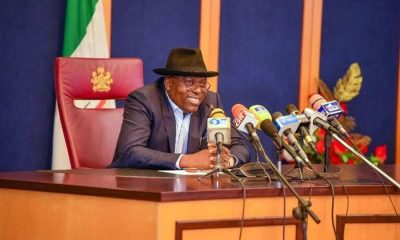
 metro2 days ago
metro2 days agoFubara reacts as Ex-HOS, Nwaeke accuses him of bombing oil pipelines, Rivers Assembly
-
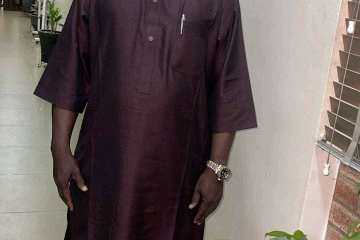
 metro2 days ago
metro2 days agoEmbrace environmental sanitation during Eid-Fitr, LAGESC boss tells Lagosians
-

 Opinion2 days ago
Opinion2 days agoBarbaric mass burning of innocents in Edo, by Farooq Kperogi
-
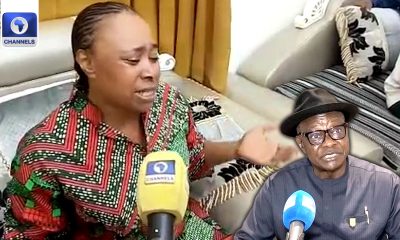
 metro2 days ago
metro2 days agoEx-Rivers HoS wife cries for help over husband’s safety
-
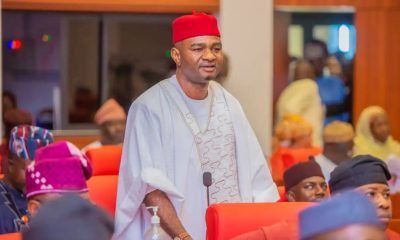
 metro2 days ago
metro2 days agoNatasha: Emmanuel Uduaghan threatens to sue Senator Nwaebonyi
-

 metro2 days ago
metro2 days agoFive shiites killed in Abuja during clash with soldiers

